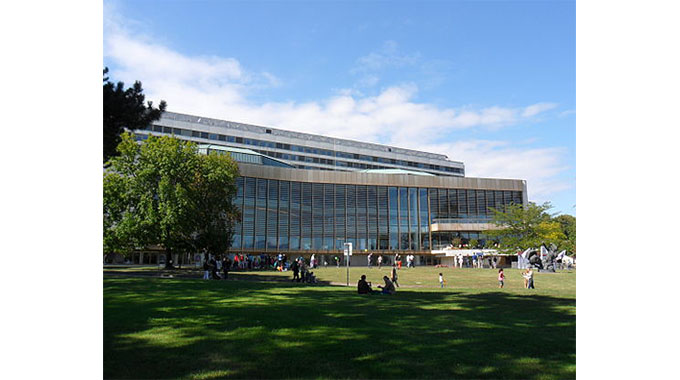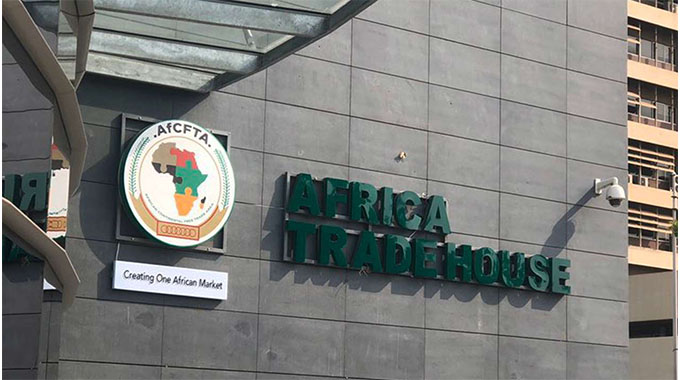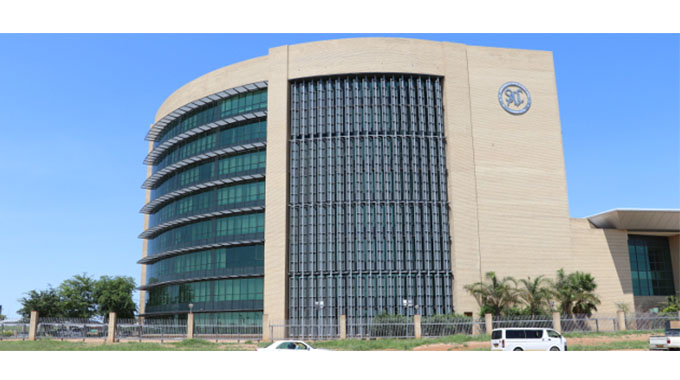Strong regional value chains imperative for Africa’s economic resilience

Prosper Ndlovu
AS the world economy navigates through negative impacts of the on-going Russia-Ukraine war and its interplay with the Covid-19 pandemic, there is growing debate on rethinking global supply chain strategies with focus on strengthening resilience building mechanisms, especially for Africa, in order to cushion local economies and save jobs.
The widescale Covid-19 lockdown measures experienced in the last two years and the Russia-Ukraine crisis so far this year, have clearly exposed the fragility of the globally interconnected economic system, putting on spotlight the need to bolster resilience building against future shocks, according to The Economist Magazine, June 2022.
Since the outbreak of Covid-19, the global economy has been facing complex headwinds due to constrained trade patterns resulting in adverse impacts on individual livelihoods, business viability, governance gaps, weakening of provision of basic services and societal survival at large.

Covid-19
For the African continent, which is largely dependent on supply chains linked mainly to the global north, the prevailing global disruptions pose a serious threat to many economies within the region.
This buttresses the need for Africa to rise together in tackling emerging challenges emanating from a changing global supply system.
While intra-Africa trade has increased in recent years to about 17 percent, the United Nations Conference on Trade and Development (UNCTAD) observes that the continent largely remains under-represented in global trade.
The agency points to weak intra-Africa trade when compared to Asia and European blocs, for instance, reliance on primary industries and raw commodity exports, high product and market concentration of exports and frail regional production networks as major setbacks that expose the African continent to external shocks.
Low performance in intra-trade facilitation indicators and minimal domestic value addition and beneficiation of natural resources, equally hamper development of strong regional value chains, which must form the basis of solid resilience and a viable regional economy.
For example, it still takes a long time to transport goods across the African region as opposed to transporting the same goods outside the region, says Ms Bajabulile Swazi Tshabalala, senior vice president with the African Development Bank (AfDB).

Ms Bajabulile
She advocates for standardised rules to ensure that trade is seamless, with bottlenecks removed to improve transport and transit facilitation measures, which would steer robust industrialisation that is built around the private sector as key partners in strategy implementation.
Following the Russia-Ukraine war and the subsequent slapping of sanctions against Moscow by the United States and its Western allies early this year, the global economy has suffered rising inflationary pressures amid financial instability in the wake of a sharp spike in energy costs, global commodity supply shortages and generally strained regional and international trade.
From a business perspective, industry executives have expressed concern over emerging procurement and supply constraints, challenges from new demand patterns, rising production costs as well as logistical challenges, which are piling pressure on developing economies, especially.
Confronted with such economic risks, economic experts, with concurrence from African policy makers and researchers, have stressed the need to strengthen intra-Africa’s value chain networks through building vibrant partnerships and deliberate supply chain collaborations.
Bureau Veritas Africa defines supply chain resilience as the ability to “be prepared for unexpected risk events”, which enables economies to proactively respond and recover quickly from any form of disruption by moving to a new, more desirable state or returning to the original situation in order to increase customer service, market share and financial performance.
In this context, the continent will have to capitalise on the framework created under the African Continental Free Trade Area (AfCFTA) Agreement, which came into force last year, to formulate strong intra-regional partnerships with focus on reinforcing supply chain risk management as part of momentum building towards the desired regionally integrated economy dream of our founding fathers.

AfCFTA
Already the historic continental trade deal sets ambitious long-term goals in deepening integration among African Union member States and building a prosperous and united Africa.
Among its main objectives is facilitation, harmonization and better coordination of trade regimes, as well as the elimination of challenges associated with multiple and overlapping trade agreements across the continent.
Through this initiative, African economies hope to strengthen the competitiveness of local industries, realise economies of scale for domestic producers, better allocate resources and attract foreign direct investments.
In keeping with global trends, Africa also needs to move swiftly in growing intra-regional trade through digital transformation of customs and border administration services, which would reduce non-tariff barriers and lead to trade gains of about US$20 billion a year, compared to the US$3.6 billion from elimination of tariffs alone, according to the World Economic Forum.
The inclination towards partnerships was strongly emphasized during a virtual dialogue last week, which was jointly organised by the Southern Africa Development Community (Sadc) National Planning Entities (NPE), in collaboration with United Nations Economic Commission for Africa, Subregional Office for Southern Africa (ECA-SRO-SA).

Sadc
The meeting focused on the macro-economic impact of the Russia-Ukraine crisis on the region and attracted more than 120 participants from countries across the region. It also explored how best countries could manage the negative impacts of the unforeseen global shocks while exploiting opportunities presented by such events.
In her remarks, chief of the sub-regional initiatives section, ECA-SRO-SA, Ms Isatou Gaye, stressed the need for building supply chain resilience crisis on Southern Africa. This, she highlighted, could be achieved through adoption of key strategies namely; self-reliance, financing, and building institutional resilience to external shocks.
Director general of the National Planning Commission of Malawi, Dr Thomas Munthali, who chairs the NPE Platform, emphasised the regional character of the impacts triggered by the global value chain disruptions and encouraged countries to work towards coming up with collective solutions.
He underlined the importance of building regional value chains to sustain the region’s economies when faced with crises such as the Ukraine-Russa conflict.

Dr Thomas Munthali
Relevant measures to be considered include building regional productive capacities in key sectors, including energy, transport and cross-border infrastructure and ICT, as well as establishing supportive financial systems, he said.
In the short-term, the executive stated that the quality of expenditures by member countries will be key to lessening pressures on fragile national budgets.
Sadc consultant, Dr Nicholas Charalambides, delivered a comprehensive presentation on the impact of the Russia-Ukraine crisis on the region, including on prices and supply of key commodities, inflation and financial stability, transport, global growth and trade.
The presentation was followed by a discussion session during which NPEs from Malawi, Lesotho, Eswatini, Zimbabwe and Angola shared their experiences on the impacts of the crisis on their countries, its interplay with the impact of the Covid-19 pandemic, and the policy measures being implemented to mitigate the impacts.
Of note, the key speakers emphasised the need for adoption of “impactful region-level solutions” given the commonalities of the impacts on countries.

Ms Isatou Gaye
In this context, they reiterated the potential of developing strong regional value chains, deepening regional capital markets, and having a joint stance on debt relief negotiations, among others.
The Sadc National Planning Entities Platform brings together the NPEs of Sadc member States, endorsed as a Sadc entity in 2015, and revived in April 2022.
The overall goal of the initiative is to strengthen the capacity of NPEs in the region, and to support Sadc member States in implementing regional, continental and global development agendas.










Comments